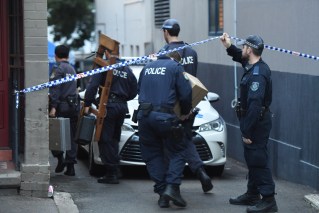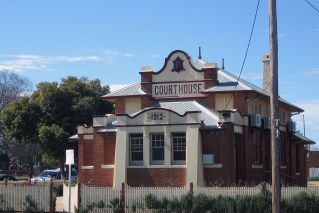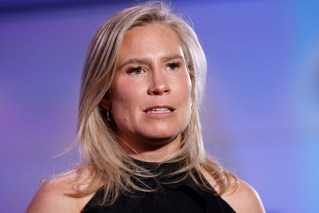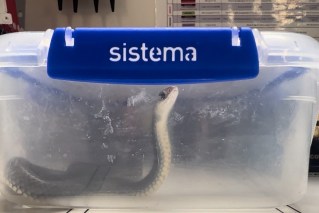Thunderstorm asthma alert as hospitals struggle under COVID caseloads

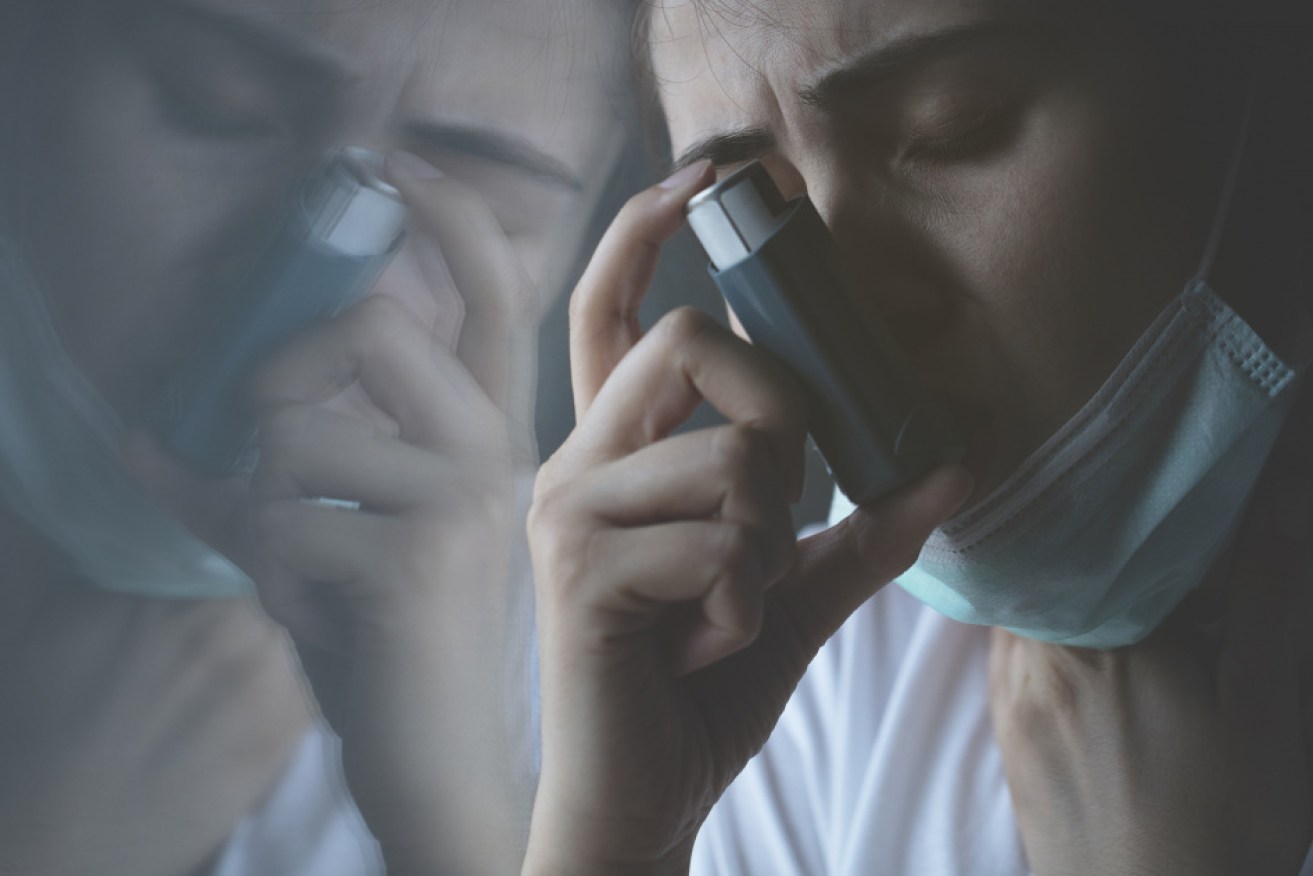
Regional Victorian hospitals, already under pressure, are bracing for a surge in asthma patients on Thursday. Photo: Getty
Victorians have been told to be ready for thunderstorm asthma on Thursday, with authorities warning hospitals are already under pressure while keeping up with the growing number of COVID-19 patients.
The state’s southwest, Wimmera and Mallee districts will be high risk areas. Storms were already forming over the Warrnambool district by 6am.
“The combination of forecast high grass pollen levels and severe thunderstorms with strong winds means that there is a chance that a large number of people may develop asthma symptoms over a short period of time,” the warning says.
“Our hospitals are experiencing significant demand due to COVID-19, so it’s important you stay well.”
Those at risk are being advised to avoid being outdoors during storms and the winds that precede them, and remember to take preventative medication.
A thunderstorm asthma event in 2016 killed nine people and saw thousands more hospitalised.
The warning comes as health authorities urge half a million people to get vaccinated the day before statewide restrictions ease once again.
From 6pm Friday, people in metropolitan Melbourne will be allowed to travel to the regions and interstate, masks will not be required outdoors, and non-essential retail stores will be able to open.
But about 500,000 Victorians have yet to receive their first vaccine dose, with only 83 per cent of people aged in their 20s getting a first jab.
The state recorded another 1534 locally acquired virus cases on Wednesday and 13 more deaths, with about 85 per cent of Victoria’s new cases among people who are not fully vaccinated.
The latest deaths take the toll from the current outbreak to 247.
About 750 people are currently in hospital with coronavirus and of those, 138 are in intensive care with 87 on a ventilator.
Check below for the latest coronavirus updates out of the other most-impacted states.
NSW
A Sydney gym is at the centre of a COVID-19 outbreak as infections in several NSW regions rise and the state gears up for unrestricted travel to resume for the first time in four months.
There are 15 confirmed cases of COVID-19 linked to City Gym, in Darlinghurst in the inner city, involving people who attended while infectious or acquired their infection at the facility, NSW Health said.
People who used the gym at certain times on October 18, 19, 20, 21, 22, 23 or 25 are considered casual contacts and must immediately get tested and self-isolate until a negative result is received.
NSW recorded 304 new locally acquired infections and three deaths in the 24 hours to 8pm on Tuesday.
Outbreaks in several NSW regions continue to grow..
The cluster in the Hunter New England local government area grew by 83 new cases – up 34 on the day before, and accounting for more than a quarter of the state’s new cases.
Once again the Murrumbidgee Local Health District, which includes the Victorian border town of Albury, recorded the second-highest daily tally with 38 new cases, while Wodonga on the other side of the border recorded 46 cases.
Some 22 new cases were also recorded on the mid-north coast.
The highly anticipated move to unfettered travel to the regions is due to start on Monday after being delayed over lagging vaccination numbers in the regions.
Premier Dominic Perrottet has hinted it could happen sooner, saying his COVID economic recovery committee will be examining “aspects of the roadmap” this week.
While on average more than 85 per cent of NSW residents aged over 16 are fully vaccinated, about 60 regions have less than 85 per cent coverage and 14 have a vaccine uptake of less than 75 per cent, she says.
UNSW epidemiologist Mary-Louise McLaws has called for a “sensible” delay – at least four weeks – to travel to the regions.
Meanwhile, the number of people in NSW hospitals with COVID-19 continues to decline, with 97 people in intensive care of which 43 are ventilated.
The death toll from the current outbreak, which began in mid-June, is 506.
Of the NSW residents aged 16 and over, 93.2 per cent have received one dose of a COVID-19 vaccine and 85.5 per cent are fully vaccinated.
In the 12 to 15-year-old age group, 78.3 per cent have had their first dose and 53 per cent are fully vaccinated.
ACT
Some COVID-19 restrictions in the ACT could be rolled back earlier than anticipated due to increasing vaccine rates.
Chief Minister Andrew Barr said parts of the last stages in Canberra’s COVID road map could be brought forward a few weeks. They were initially slated to be eased from November 26.
Those changes would see density limits decrease, with caps on household gatherings also scrapped.
“We’ll be looking at the November settings earlier than anticipated,” Mr Barr said.
“We’ll have another look in a couple of weeks and I think people can expect if we continue on the current trajectory we can bring things forward.”
The ACT on Wednesday reached the 90 per cent fully vaccinated rate for residents aged 12 and over.
Mr Barr indicated Canberra was on track to get to 99 per cent fully vaccinated by the end of November.
Nearly one week after retail was able to reopen to the public, the ACT economy is showing signs of recovery.
Mr Barr said retail spending was 20 per cent above levels seen during the same period in 2019.
At the peak of the lockdown, spending levels were down by 18 per cent compared with two years ago.
“That’s a 40 per cent turnaround in spending, and there’s been a lot of pent-up demand and money being spent,” Mr Barr said.
Restrictions are due to be eased again this Friday, with mandates on face masks outdoors scrapped and household gathering limits doubling from five to 10.
Density limits at cafes, restaurants and pubs will increase, while cinemas, museums, zoos and entertainment venues will be allowed to reopen.
ACT Health Minister Rachel Stephen-Smith said visitor restrictions at the city’s hospitals would be lifted.
Patients will now be allowed one visitor per day.
The territory’s chief health officer Dr Kerryn Coleman said quarantine rules would also change from November 1, in line with the resumption of open travel between NSW and Victoria.
Casual contacts of COVID cases will no longer need to undergo quarantine if they are fully vaccinated, but will still need to isolate until they receive a negative test result.
For close contacts, quarantine times have been halved from 14 to seven days, with a negative test needed on day six.
Dr Coleman said the number of cases in the ACT was falling, with 131 infections this week compared to 230 the week before.
The five-day average for cases now sits at just over 10, after a peak of 40 at the beginning of the month.
Of all cases since the start of the outbreak, 68 per cent were unvaccinated.
The ACT registered 10 new infections on Wednesday, with 11 coronavirus patients in hospital.
-with AAP

